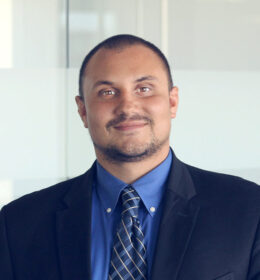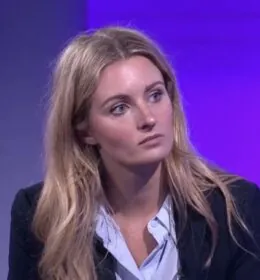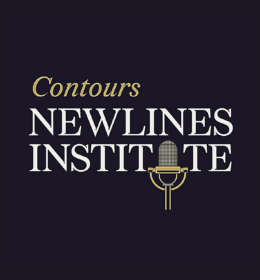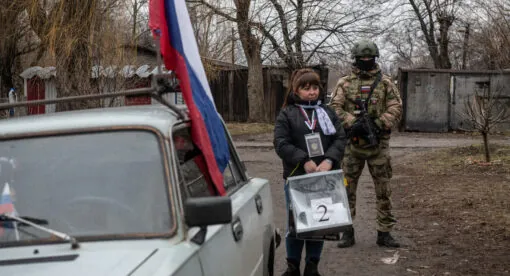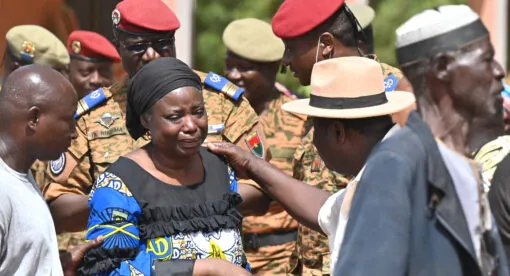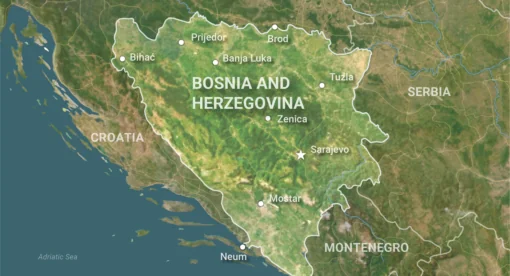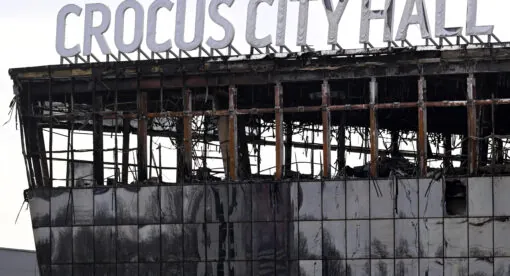The unfolding civil crisis between Israel and Palestinian factions in Gaza is already having significant regional effects in both the Middle East and the international community. The eruption of violence between Israel and the Palestinian Territories has disrupted a series of Arab-Israeli normalization deals, initiated with the 2020 Abraham Accords, and the Biden administration’s planned pivot away from the Middle East as the United States focuses on great power competition.
Nick Heras: Hello everyone, and thank you for joining us for today’s Contours podcast, production of the Newlines Institute for Strategy and Policy. My name is Nick Heras, and I am the senior fellow and head of the State Resilience and Fragility Program here at the Newlines Institute. I will be the host for today’s discussion on the unfolding civil crisis within Israel in some towns and cities that feature mixed populations of Palestinians with Israeli citizenship in the Israeli Jewish communities and, simultaneous to this crisis within Israel, metastasizing war between various Palestinian factions based in Gaza and Israel. The unfolding crisis in Gaza is already having significant regional effects at a time when Israel is seeking to leverage the Abraham Accords to build partnerships with Arab states. It is also coming at a time when the Biden administration is looking to sharply reduce American focus on the Middle East and pivot to great power competition with China and Russia.
I am joined for this important discussion today by insightful experts on the topic of Israel, Palestine, and U.S. policy on the Middle East. First, my Newlines Institute colleague, Caroline Rose. Caroline is the senior analyst and head of the Power Vacuums program here at the Newlines Institute. Omar Rahman: Omar is a visiting fellow at the Brookings Institution’s Doha Center, where he is writing a book on Palestinian fragmentation in the post-Oslo era. He’s also a well-respected analyst and commentator on Middle East issues. Caroline and Omar, thank you for joining us today. I want to start off with an overarching question for Omar to react to. Omar, I like to get your take on this. Why did a local police action in Jerusalem lead to a crisis across Israel and Palestine? And is there a reason why it’s happening now?
Omar Rahman: First of all, Nick, thanks for having me on. To answer your question, the way I’ve described it in my writing and why this has escalated and escalated so quickly and far and wide in Israel and Palestine, is it’s kind of like the rings of an onion. In the outer layer you have what’s unfolded over the past few weeks in Jerusalem, centered in Jerusalem, and that is that you had what happened at Damascus Gate, which was protests against kind of arbitrary measures by the Israeli municipality and the Israeli authorities to kind of prevent Palestinian gathering during the month of Ramadan in a very important space on the outskirts of the Old City. And so that led to nightly protests, and there was a severe repression from the police, and that kind of spread. It was also the protests around Sheikh Jarrah, which is a neighborhood in East Jerusalem in which a number of Palestinian families were going to be forcibly expelled from their homes, and that’s part of a process that’s been going on for quite a few years.
If you go inwards in the onion, then you start to see the the policies of the Israeli state and of Jerusalem around demographic engineering within the city itself. And so that created those policies aimed at demographic engineering in Jerusalem and basically limiting or even reducing the population of Palestinians within Jerusalem and growing the Jewish population. And all of that is aimed at reinforcing the narrative and the claims of exclusive sovereignty to Jerusalem by the state of Israel and so that the Palestinians don’t [sic] have less of a claim there. And those policies, really haven’t — they’ve been disastrous for the Palestinian residents of the city, but they haven’t really worked in reducing the population. So, Palestinians today make up about 40% of the population of Jerusalem, but what it has done is it’s created this deeply unequal city, where frustration and anger is rife. And that’s because Palestinians only have about eight percent zoning for residential use, even though they’re 40 percent of the population. They have no space to grow. There’s a shortage of housing, there’s a shortage of schools, a shortage of, of hospitals, and so it’s deeply unequal there. And they don’t have really a say in the politics. That leads to a situation in which if you start the state itself or the authorities start clamping down or arbitrarily taking these kind of measures as a society, really, and what it is, is it’s a measure to say we’re in control. And this is also endemic to the occupation in the West Bank, in which Israel might, you know, raise a flying checkpoint here or there or put forces into a city to say, hey, we’re here and we’re in control. And the same thing happens in Jerusalem. And so that kind of thing leads to popular anger, it leads to kind of an outburst protest movement organization around that.
Now, if you go in the internal layer of that onion, it’s about Palestinian dispossession writ large, and denial of rights and all that kind of stuff. And finally, all of this is happening in a context in which there’s profound frustration and dismay with the political situation, there’s a lack of leadership, a lack of a political horizon, no movement within the peace process, endless occupation, there were the canceled elections within the Palestinian Authority. And you know you have the, this kind of Oslo generation here, which is 60 percent of the Palestinian population in, in the West Bank and Gaza is under the age of 25. So they were born into this situation in which there is — things have gotten worse, and there and there’s no political horizon here. And also, within Israel itself, you have the politics of exclusion happening within the Palestinian citizens of Israel towards their state and they feel excluded. And so you have this kind of environment, this climate in which there’s a lot of frustration and it’s basically like kindling on a fire. And so if you light this kind of match, I think that’s why we’re seeing things explode and escalate and traverse the entire country.
NH: Omar, thank you very much for that wide ranging and detailed explanation on why what would seem to be a local issue in Jerusalem has metastasized into a wider crisis. Caroline, I’d like to bring you in on this question, because as we’ve seen over the last couple weeks, the situation in Israel-Palestine still has significant impact on how different actors in the Middle East region create their policy. And it’s interesting that we are at a period where there was an assumption that the so-called Abraham Accords, which had been brokered by the Trump administration between Israel and some of the, the Arab states of the United Arab Emirates and Bahrain and others, would really be new trend line shaping regional events. So what is your take on how the current crisis in Israel and Palestine is impacting how regional players in the Middle East position themselves, especially vis-a-vis the Abraham Accords.
Caroline Rose: Absolutely. Thank you, Nick, and thank you, Omar. I think that the clashes that have gone on between Israel and Palestine, it presents a moment of reckoning for Arab governments that have signed on to the Abraham Accords and other state governments in the region that have tried to normalize relations with Israel. Because essentially, I think after the Abraham Accords, there were a number of governments that believed that beyond the issue of annexation, Israeli-Palestinian peace would be an agenda item that wasn’t necessarily prioritized, because you had a flood of economic financial infrastructural opportunity, particularly for the UAE and Israel. And I think that this puts us back on the agenda item.
And for a lot of countries — for example like Saudi Arabia, which hasn’t officially normalized relations with Israel but of course gave the green light, this is an opportunity to try and save face, but at the same time, try and keep the spirit of normalization alive. And of course, a lot of these Arab governments, they’ve got a historical record of essentially championing the Palestinian cause. If you even look at some of the statements that were issued by a lot of GCC governments, particularly the UAE Saudi Arabia, some of these statements are a bit milquetoast in the respect that you can see that they are clearly trying to balance relations with Israel, but at the same time try and save face and uphold the Palestinian cause. For example, the UAE, they called an Israel to take responsibility for deescalation. Saudi Arabia said that they rejected its strategy of evicting Palestinians.
Then, interestingly, you’ve got other countries that are trying to position themselves as the custodians and the champions of the Palestinian cause — for example, Iran and Turkey. Turkey’s President Erdogan, he said that they do everything that he could do to call and mobilize the world to put an end to terrorism and the occupation. So it’s quite fascinating, looking at some of the regional responses that not only are a condemnation but also a call to action in trying to stop Israeli strikes in Gaza and stop the violence. It’s also interesting because I think that the violence has also caused some governments, for example the United Arab Emirates, to hesitate a bit about the pace of normalization and the pace of economic cooperation. For example, one of the strikes that did reach the port of Ashkelon, it hit a fuel storage site — a fuel storage site that is a part of a very important pipeline between Eilat and Ashkelon and, of course, is part of plans, greater plans, with the United Arab Emirates. And I think that that particular strike made a lot of economic and trade partners of Israel in the GCC hesitate and perhaps reconsider, the pace of cooperation, the pace of economic partnership. And this very important pipeline, which is 600,000 barrels per day of crude the pipeline transports from the Red Sea port city of Eilat in southern Israel to the Mediterranean Port City of Ashkelon.
NH: Thank you very much, Caroline, and it’s fascinating the way you paint the picture of the regional dynamics and the way that Israel’s would-be new Arab State partners are essentially locked in a delicate diplomatic dance to pay lip service to the Palestinian cause, because that resonates so strongly on the so-called Arab street, but also to signal to the Israelis — and in particular Israeli security establishment — that they sympathize with Israel’s security concerns. It’s a very fascinating dynamic to observe. Now, I want to pivot a bit because Omar, Caroline has really done a great job showing us how those regional dynamics all tie together. From the Palestinian perspective, is there a coherent Palestinian vision for what the end state goal they’re seeking for at the end of this crisis is? I also want to ask you, how do these traditional Palestinian factions such as Fatah Hamas, Islamic Jihad, and others — how much do they matter when so much of the protest movement seems to be driven by Palestinians with Israeli citizenship?
OR: Thanks, Nick. And I also agree with Caroline’s assessment. I thought it’s quite right. You know, I can even add a little bit to that, you know, in terms of I think it is making those states that have gone through normalization with Israel very uncomfortable. I think it will slow the pace of movement on that side. One thing I always said dealing with this issue is that it’s happened or normalization took place within a certain context in which the risks to those states that move forward with Israel were fairly low, but that context changed. And this is part of, I think, that changing context. I don’t think we’re at the point in which a strategic decision like this on behalf of those states is going to be altered or broken, but I don’t think those agreements are invulnerable as well.
For your other question when it comes to the kind of — the goals of the traditional factions within Palestinian society, I think — I don’t know if they have goals per se for this — what’s taking place now. Because like everybody else, I think these factions were caught off guard. They were caught by surprise. In the Gaza Strip with Hamas and in the West Bank with the Palestinian Authority, which is led by Fatah and Mahmoud Abbas, I think there was the question if these guys could stand by and do nothing as the situation was unfolding in Jerusalem and especially with what was happening at the Al-Aqsa compound at the Haram al-Sharif, which is obviously very sensitive and, and religiously important. This all obviously was taking place during Ramadan, which is the holy month and so clearly, I think Hamas didn’t think so. It didn’t think that it could just sit on the sidelines. Hamas, is, is in a sense being opportunistic here. I wouldn’t paint them with the brush that some do of being cynically opportunistic, because this is also a life-and-death situation; when Hamas fires rockets, their leadership is not invulnerable. They’re often targeted and killed, and they have been in this particular crisis, and their families are also there in the Gaza Strip and come under harm’s way. And many are killed. And so, I don’t think it’s a cynical approach in which they are making a decision to benefit without cost, or the cost is carried just by the population there.
On the flip side of things, Abu Mazen or Mahmoud Abbas — that’s his nickname — in occupied West Bank has very little leverage. He’s been powerless and sidelined and it shows, and everybody sees that. Hamas, they were also sidelined from what’s happening in Jerusalem because they’re territorially fragmented for it, but they had some form of leverage in the form of rockets and so they use that and you can judge whether that was smart or not. They felt it was. But I think Abu Mazen actually to an extent benefits from the renewed attention that’s being placed on the situation, to an extent. Even though he’s not a party in the sense of him putting his fingers on the scale or trying to act in a particular way to influence events, I think overall what he’s been hoping for is that his goal of going back to the negotiating table and, and negotiating a resolution of this conflict will be served. The Biden administration, which obviously the United States has been the primary mediator of this conflict, has wanted to ignore and deprioritize this conflict, obviously, and we’ll probably get into that. But, you know, Abu Mazen was hoping they’d get back to the negotiating table, or he’d get back to the negotiating table, but that’s not going to happen when it’s deprioritized. So now it’s come back into the international consciousness, the public attention can’t be ignored, and so maybe he benefits in that regard.
I think these traditional factions are marginal to what was happening on the street and what was happening in Jerusalem, but they’re still, they’re still relevant in the sense that they control the institutional structures of power and influence within Palestinian politics. So Abu Mazen is at the head of the Palestinian Authority. He’s at the head of the of the PLO, the Palestine Liberation Organization, and so therefore he has a lot of power and influence even though these traditional factions and these political structures are increasingly disconnected from the public and the people they purport to represent. And so they mattered less, I think, in the street and in the organization of protest against what’s happening. So what went on with Israel, these guys were completely disconnected from it. The majority of Palestinians, especially of young Palestinians that were, as I said, part of the Oslo generation born in the last 25 to 30 years, are not affiliated with these factions in that particular way — they’re kind of, they’re unaffiliated, so they’re organizing in a different way. Now, when it comes to the Palestinian citizens of Israel, I think that’s also true to an extent as well, although they have representative politicians that they vote within the Israeli democratic system and most often for their own politicians. And so they have a sense of representation, legitimate representation, that those in the occupied territories no longer have because elections haven’t been held in quite a long time. Their involvement. I don’t think the political parties and the joint List have been involved or have been organizing what’s been going on, and the participation of Palestinian citizens of Israel within the protest movement. And within all that, I think it’s outside of that, but still, there is that kind of connection.
NH: Omar, I would like to follow up. Because you make a very interesting point about the way that the various different population of Palestinians in this area interact with each other’s politics and the sclerotic structures, for lack of a better term, that sort of dominate Palestinian politics in the West Bank and Gaza, and you get a sense that there’s much more dynamism among the Palestinian citizens of Israel, than there is among the Palestinian population in the West Bank and Gaza. But I do think that there’s an interesting question here, the extent to which that the cancellation of the Palestinian Authority elections by Mahmoud Abbas might play into the sort of current crisis, and I want to ask you also — we’ve seen from some Israeli commentators a assertion that Hamas is actually beginning to influence the Palestinian street, if you will, inside Israel and is gaining influence. Do you see any evidence of that?
OR: Sure. Let me start with the first question. I think there is more dynamism in the politics of the Palestinian citizens of Israel. And as I said, I think there are a number of reasons for that, one being that their politics is more representative and they have an opportunity to influence those politics through their vote, through political organizing in a way that the Palestinians within the Gaza Strip and within the occupied West Bank, under administration of the Palestinian Authority, do not. Because those Palestinians in the occupied territories have essentially been denied by their own government, and by the Israeli occupation, which is 54 years and running, the ability to participate in their own politics, and politics has become more authoritarian and more repressive under the PA and under Hamas. And therefore there is a disconnect, and there’s a sense of apathy — an apathy because they cant influence their own politics and because the 54-year and running occupation and the lack of political horizon. Whereas within Israel itself, there is an apathy as well, because in a sense, they feel like even if they have the strength of 15 Knesset seats which made the joint List at its height, the third largest party within the Israeli Knesset, they are denied the ability to enter government, because Israel has never had the participation of Arab parties within a governing coalition. They feel like they can’t really affect politics, no matter how well organized they are, and so that does exist. But there is much more dynamism in terms of the politics, in terms of the representation.
Also, as you’ve moved away from the two-state solution as being a viable option, you’re moving towards the collectivization of Palestinian politics overall within the society. Those with the most standing, and the most rights, and the most ability to begin to participate in politics are actually the Palestinians in Israel, because they’re the most enfranchised. They’re not enfranchised at the level of Israeli Jews, but they are enfranchised more than their kin in the occupied territories. And so they have more power to influence events. And so they often speak on behalf of Palestinians in total. Now, going to the cancellation of elections, I think it’s certainly a factor. I don’t think it’s a driving factor of what’s happened, but it adds to the well of dissatisfaction with leadership overall, with how things are going. And so, that kind of frustration builds and allows these things to spread. Again, I don’t think it’s what was driving the protest movement at all within Jerusalem, but it’s, you know, it certainly adds to the feelings and allows these things to spread.
Regarding the Israeli commentators’ assertion that Hamas is more influential on the on the street, within Israeli society among Palestinian community within Israeli society, I don’t know if that’s accurate. I think, in fact, a lot of people see what happened with Hamas kind of initiating rocket fire out of Gaza as detrimental to what had unfolded for four weeks before that, which was a organic nonviolent protest movement. Obviously, you know there’s stuff like throwing rocks and bottles and all that kind of stuff, and a response to the state violence. But you had a mobilization, a grassroots mobilization, that the world couldn’t turn away from and had a hard time responding to in a dismissive way, and then Hamas starts firing rockets, Israel responds, and the narrative of policymakers abroad suddenly fits into its familiar pattern of what ‘well Israel has the right to defend itself, Hamas is the problem’ and so it’s kind of distracted from that and so I feel like people would be disappointed with that. Also the Palestinian society within Israel has its own Islamist movement. It’s not Hamas. It’s the northern branch and the southern branch of you know the Islamist movement within Israel. Both of those sides came out of the Muslim Brotherhood, but they have their own Islamist politics within that society. So I don’t think they kind of look towards Hamas has something. But, although, some people might feel that armed resistance or military resistance that Hamas embodies is a positive thing. I mean that’s an ideological point. So there might be some affiliation there, but I don’t think Hamas is driving anything on the street within Israel itself.
NH: Thank you, Omar. Very interesting details you provided us on how the social politics within the Palestinian community are evolving, and particularly your analysis on the impact that Hamas might have on the organization and shaping of social politics within the Palestinian community with Israeli citizenship inside Israel is very well taken, and it is something for us to think about when we think about sort of forecasting the long-term effects of this current crisis on the dynamic social political dynamics, but also regional dynamics inside Israel and in the Palestinian areas. Caroline, I want to pivot to you because what we have begun to see is some of the Palestinian factions in Gaza, in particular Islamic Jihad but also Hamas, have really have sort of spoken to the impact that Iran has had — in particular its Islamic Revolutionary Guard Corps and its Quds Force has had — on their ability to project power, and to improve their capabilities to strike at Israel. And so that opens up sort of a broader question of what regional actors, and potentially extra-regional actors outside the Middle East, might benefit the most from this current crisis?
CR: That’s a great question. And I will be, I’ll be honest. I don’t necessarily think that one country or regional power in particular is going to be able to unilaterally exploit this crisis to the best of their advantage. I think that certainly Iran and Turkey are going to move in on this crisis and try and take ownership over the Palestinian cause to a certain extent, and the political Islamist movement, and try and essentially rally Palestinians and take ownership of the former de facto leadership that the GCC had over this issue. I think that they’re going to try and play a larger role in engaging the Palestinian community on this. And then on Iran’s part, I think that Iran is going to also try and leverage this and leverage some of their limited influence and of course, their arms imports into the Gaza Strip as a way to leverage the JCPOA nuclear deal discussions that are going on in Vienna right now.
Now, of course, I think that there’s there’s this narrative, especially within the Israeli government, that sometimes can overdramatize the Iran connection. A lot of these weapons that the PIJ and Hamas are using, they’re not necessarily just Iranian; they’re — they’re Russian, they’re Chinese, they come from a plethora of different locations, but there is certainly a connection and I think that Israel is also going to try and use that connection as a leverage point in the JCPOA negotiations, as well. So yeah, it’s going to be quite interesting to see how then the GCC countries respond to this, particularly after Turkey’s been trying to realign and enact a reapproachment campaign with some countries like Egypt, like the UAE, and resolve, the inter-GCC crisis. And then on Iran’s part as well. I think that a lot of GCC countries and their partners, such as the United States and Europe, they are also going to be faced with a very difficult question of how to curb Iranian influence in this while at the same time, trying to deescalate and restore some sense of stability and encourage the Israeli state to do that as well. So I think it’s a tough question, but I think that really you’re going to see Turkey and Iran try and impose and position themselves as the winners, the so-called winners, of this crisis and exploit it.
NH: Thank you, Caroline. So, I want to pose a question to the group, and I think that it’s important for us to recognize that so much of the U.S. perception of the Israel-Palestine conflict has often come from the lens of the U.S. perception of the U.S.-Israeli relationship. There is talk now of a third intifada potentially developing from this current crisis. We’ve seen over the last week or so as this crisis has been going on the number of prominent members of the Democratic Party caucus, especially in the House of Representatives, have voiced what are essentially unprecedented concerns about the impact of this conflict on Palestinian civilians in Gaza, and also have expressed concerns about the trajectory of Israeli society and the ability for Palestinians with Israeli citizenship to have full rights as citizens of Israel and to have the ability to enjoy human dignity and the pursuit of happiness. And this has been unprecedented in the debate in Washington, D.C. So I want to ask the group: Was the Biden administration, sort of asleep at the proverbial wheel on the Israel-Palestine policy? Is it playing catch-up? And what impact would a third intifada inside the Palestinian areas in Israel-Palestine have upon not only a new generation of Palestinian leaders, but also the way in which the United States would have to develop its Israel-Palestine policy and policy on Israel? Omar, I’d like to you to weigh in first.
OR: Well, I don’t know if asleep at the wheel is the right metaphor. Certainly, the Biden administration, deprioritized this issue. But that was expected, to some extent, given the other issues the Biden administration is dealing with, whether it’s COVID, whether it’s Iran, whether it’s climate change, or whatever. So they deprioritized this issue. But what this crisis is showing is that ignoring it or deprioritizing it won’t make it go away. In fact, it’s going to just keep coming back, keep coming back, unless the core issues are essentially addressed.
The bigger problem, I think, for the Biden administration is that because it deprioritized it, it did not invest the type of resources and bandwidth on the Israel-Palestine file that were needed to respond to a crisis, and that’s why they’re caught off guard or unable to respond properly. You had the appointment of Hady Amr to, to a position within the State Department, and he’s a very capable diplomat, and he knows the issue inside and out, but there was no, you know, appointment of a special envoy, there’s no ambassador to Israel, there’s no — none of the resources and bandwidth and people there on the ground that are experts on this file needed to respond to a crisis like this and to do it effectively. And so, I think that, that is the bigger issue when it comes to the Biden administration. But at the same time, it is also the way it has responded has been extremely poor, and, and lackluster, and, and not rising to the moment that’s needed of the Biden administration to involve itself to help deescalate this crisis. And that’s also extremely problematic and extremely, I think, disappointing. It’s also damaging the Biden administration’s own goal to lead the world on human rights. Obviously, we’re seeing a grave in- grave injustices of human rights taking place in terms of expelling people from their homes in terms of what’s happening in Jerusalem and, and the horror of what’s happening in the Gaza Strip and the Biden administration has been essentially silent on that or has just again fallen into a familiar pattern, talking points that are irrelevant and not up to the moment itself.
CR: To move off of some of what Omar just said, I think he’s absolutely right. I think that this administration, especially following, following the Abraham Accords, there was a bit of an autopilot mode in some ways, particularly as they were constructing their larger Middle East policy. And I think many officials, and some of the policy was naive and not necessarily seeing the trouble that was brewing, both within Palestinian and Israeli society but then also within, you know, the governmental entities of the Palestinian Authority in the Israeli government. To what Omar said earlier, the Oslo generation that essentially brewed among the Palestinian population and the discontent and the hunger, and the disparity that really started to plague a lot of Palestinian society. That course has contributed to a lot of anger and frustration.
And then on the Israeli side, you’ve got Netanyahu, who has his own personal imperatives. A part of this, of course, this cause to sort of wag the dog and rally around the flag within Israeli society. It’s worked on his part, and I think that with the clashes were seeing now, you’re seeing a whole new level of communal hostility, and, and hatred, and, and discontent. Of course, you’re seeing the lynchings, you’re seeing police brutality, you’re seeing communities essentially fighting with, in between themselves. And this is, this is a level of discontent and hostility that I don’t think that the United States nor the international community really saw brewing, particularly underneath the Abraham Accords. So I think, I think almost absolutely right. The administration has to play catch-up. They need to find the proper team to assess this. They need to assemble a proper strategy, a country-specific and an issue-specific strategy that will of course address this issue and try and deescalate tensions.
NH: Thank you very much. Omar, I’d like to end the discussion with a blunt question. Will Hady Amr and his team at the State Department have to be prepared for managing a long-term third intifada inside Israel-Palestine?
OR: Prepare for? Yes. Is it inevitable? No, I don’t think it’s inevitable. But again, there are underlying issues. There are core issues to this conflict. And the most important one is that the Palestinian people in the occupied territories, in the refugee camps in the region are denied basic rights, they have no citizenship to any state. There are stateless people, probably the largest and most unique stateless people in the entire world. This conflict is just dragging on indefinitely and these people lack the most basic human rights — things that are even outside of citizenship should be given to them as people living under occupation, as part of human rights under international law and are denied to them. And so you’re going to continually see, whether it’s this time or next time, frustration bubbling up because what Israel is moving towards is the extension of their sovereignty or permanent sovereignty or claims to sovereignty over the entirety of Israel-Palestine from the, from the river to the sea. Under that, you’re going to have millions of Palestinians — already 5 million Palestinians, but the population will continue to grow — living indefinitely disenfranchised.
And so no people, whether it’s you, me, whether we’re Americans, whether we’re French or whatever, are going to live under a system of subjugation and oppression indefinitely without continually rising up. You may cow them for a generation, you make co-opt, certain leaders, you may do whatever, but every new generation is going to come with the same feeling of why am I being denied rights while I see, you know, people throughout the world living normally? And so this is going to continue to brew and the — what Israel is pushing towards and what it’s right-wing leadership is pushing towards, in terms of a goal, is not going to get us out of conflict. It’s not an end of conflict, it’s a recipe for indefinite baked-in conflict. But I think the American administration, this one and future ones, need to recognize the realities, need to recognize the trajectory of where we’re headed, which is away from any kind of negotiated resolution to this conflict, and change their positions and address the situation in a different way or every administration is going to be having to deal perennially with instability and conflict and violence in Israel-Palestine.
NH: Thank you Omar, for that strong and piercing analysis. I want to thank Caroline and Omar for joining me today for this important discussion on the current crisis in Israel and Palestine. And thank you to everyone who listened to us. We will continue to maintain our sentinel stare on issues related to Israel-Palestine and the regional effects of the Israeli-Palestinian conflict. All the best.
Although transcription is largely accurate, there could be some inaccuracies due to inaudible passages or transcription errors.

